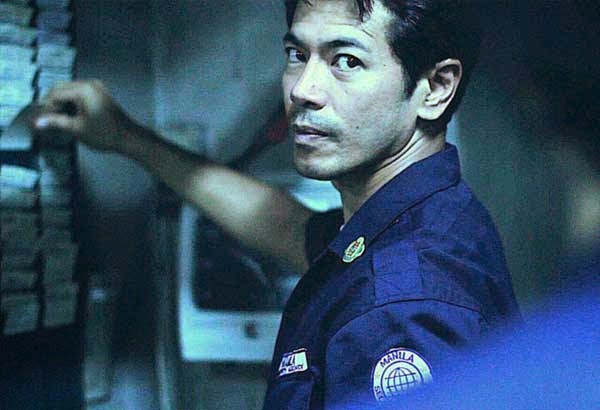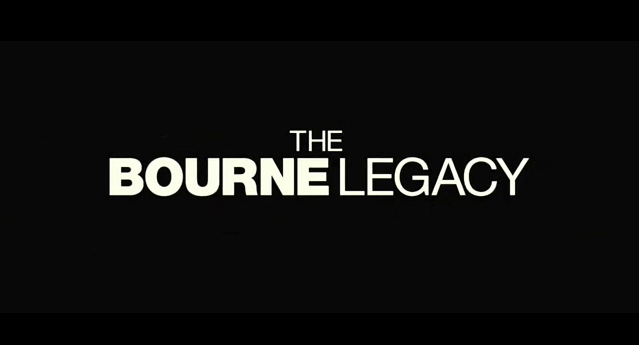Wolverine to Mystique: "Let's reboot this shit, bub!"
Before anything else, let me just
say, with utter conviction, that “X-Men: Days of Future Past” is not the
masterful “X-Men” movie that many people are making it out to be, because Matthew
Vaughn’s “X-Men: First Class” is leagues better. And, yes, screw those who
think otherwise. I’m not kidding. No, really, I’m just playing with you. Now
stop staring at me as if I killed Kennedy!
Seriously though, while I don’t
really get the enormous hype surrounding this film, I understand why it’s easy
for people to label this one as the greatest “X-Men” movie out there. Of
course, one of the obvious reasons is its merging of the actors from the
original trilogy and those from the prequel into one tremendous ensemble cast.
Another is Bryan Singer’s return to the franchise after Brett Ratner and Gavin
Hood have turned it into a watered-down joke (even now, I still can’t believe
what they did to Deadpool *shudders*). Superficial reasons, those two.
But with that being said, I think
it’s quite fair to say that you still can’t go wrong with “X-Men: Days of
Future Past” in terms of entertainment, which is often kept crisp by its ambitious
thematic flourishes. Yet sadly, narrative issues prevent it from truly being
superior to its predecessors. Though this qualm of mine can be heavily
attributed to the film’s complete disregard for continuity issues and character
inconsistencies (the last time I checked, Kitty Pryde/Shadowcat enters walls, not
people’s minds), what I’m pretty sure about is that this is the densest “X-Men”
movie of the bunch. However, it has so much going on with it that instead of
its narrative strands adding up for a highly satisfactory experience, there’s a
feeling that the film, as a whole, never really pushed the envelope further
when there’s more than enough space for it. In some ways, Bryan Singer, with a
potential super-epic in his hands, has squandered the chance by instead playing
it safe, with his intention not on delivering a staggering superhero masterwork
but only on rebooting the very franchise he himself has initially helmed. Like
a social worker who has handed out a pack of salty instant noodles to a hungry,
malnourished refugee, Bryan Singer has fed the franchise and gave it an
additional jolt of life, but nothing really long-term, for its continuity
issues will always come back to haunt it.
The film, as what is admittedly
posh among superhero movies nowadays to bolster their cinematic
self-importance, heavily tinkers with history, and for that, “X-Men: Days of
Future Past” instantly elevates itself as a different kind of superhero film.
But unlike “Watchmen”, for example, which maximizes its use of historical
events by integrating them within a most potent and well-built alternate reality,
“Days of Future Past’s” dose of history is but a nostalgic ornament, used only
to support the story’s “Terminator-like” time-travel gimmick. Also, the way the
story tells us that Magneto is involved in JFK’s assassination, unlike how
“X-Men: First Class” fits perfectly into the whole Cold War subplot, is a bit
forced and inorganic, especially when, you know, “Watchmen” has already made
use of that shocking historical event as an interesting plot nugget some years
ago. Though on a positive note, they absolutely nailed Richard Nixon this time
around without using much prosthetic on the nose part.
In addition, the plot also seems
to be so focused on Raven/Mystique (Jennifer Lawrence) being this fate-altering
wildcard that Magneto, somnambulistically played by Michael Fassbender, has no
choice but to relegate himself to a side villain role despite the fact that the
story, if logic is to be followed, dictates that he should be fighting
alongside Charles Xavier for survival’s sake. Instead, what he did was
telephatically lift a big-ass football stadium, drop it on the White House to
trap Richard Nixon and Henry Kiss-Ass-inger, among others, and discourse about
mutant respect while being a bit of an ass about it. With him being listed as
the number one greatest comic book villain of all time in a list I’ve read
quite a long time ago, Bryan Singer and company should have known that Magneto
is much better (and wiser) than that. And don’t tell me that he’s merely being
his younger, reckless self in this film to excuse his nonsensical Mojo
Jojo-like actions. Man, Joker was already as sharp as a shiv and on the brink
of breaking both Batman’s sanity and the entire moral fiber of Gotham in “The Dark
Knight” and he was not even 30 yet during that time.
But despite all those (it’s
really not possible to write a review about this film filled with nothing but
rants), the franchise (not just this film) was still more than successful in rebooting
itself without recasting any major lead characters or starting from scratch
again. When the whole superhero world is scrambling on fast-tracking a remake
of this and a reboot of that, the “X-Men” franchise has remained confident about
the universe it has built, privy of the numerous shit it has churned out but
also aware of the gems it has intermittently created all throughout these years.
Though Rebecca Romjin’s blue-scaled seductress will always be my Mystique and
Ray Park’s tongue-lashing badass my Toad, “X-Men: Days of Future Past”, though slightly
uncalled for, has made the necessary changes to make the franchise more appealing to a
new generation of audience. I mean, come on, who would not want to see Jennifer
Lawrence in an uber-fit bodysuit?
But on a more serious note, given
the film’s star-studded cast, I was surprised that there really weren't any
standout performances in it, except for Evan Peters, maybe, who truly rocked
his Quicksilver turn, specifically in THAT one scence, which would give the
Wachowski siblings a run for their money. Go watch it for yourself. Tyrion
Lannister, err, Peter Dinklage, also shines as the hard-to-hate villain Bolivar
Trask, who just wants to murder millions to save billions by way of his giant
sentinel dudes. Such a sweetie, this guy is, “Watchmen’s” Ozymandias will be
happy. A little trivia: Trask was first played by Bill Duke (!) in “X-Men: The
Last Stand”. Google him if you may. Now that’s some epic recast.
The CGI fight sequences, although
good, are oftentimes too dark and hard to follow, and the sentinels’ bodies
sometimes contort in physiologically unrealistic ways. And, seriously, do they
really need to recast William Stryker again? I know, “X-Men Origins: Wolverine”
is pure dung, but Danny Huston has done a more than decent job in portraying
Stryker in it that they should have just used him again instead.
All in all, though I have lots of
complaints toward “X-Men: Days of Future Past”, I still thoroughly enjoyed the
film for what it is, which is an ambitious, thinking man’s superhero film. In
the end, it all comes down to two things as to why I never liked the film that
much: either I just was never a fan of “X-Men”, or I am just a much bigger fan
of proper narrative continuity.
FINAL RATING







.jpg)












